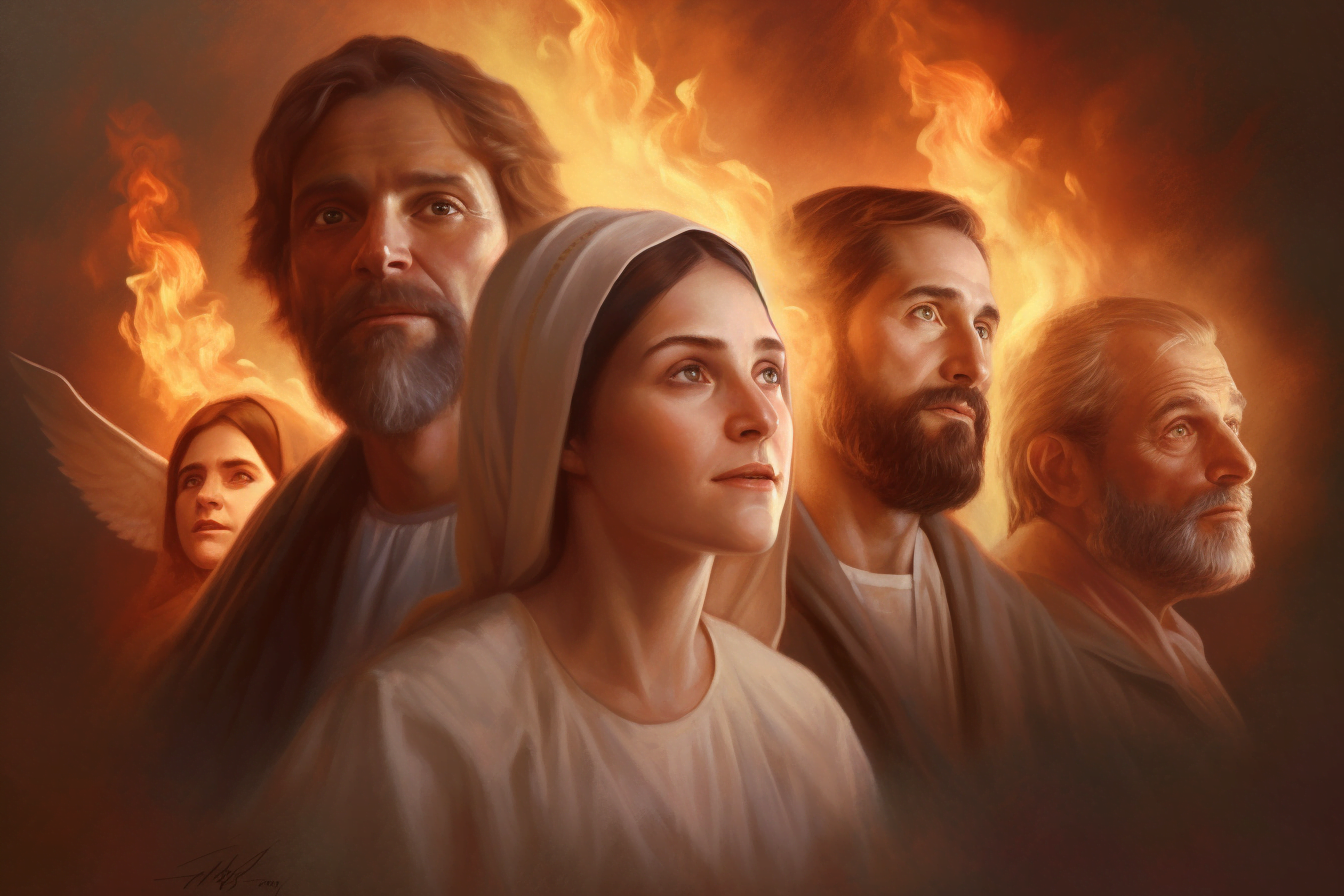Pentecost, a momentous event in the Christian calendar, holds immense significance for the Catholic Church. It commemorates the day when the Holy Spirit descended upon the disciples of Jesus, empowering them to become bold witnesses of His teachings and establishing the foundation of the early Church. This article will explore the biblical narrative of Pentecost and its connection to the birth of the Catholic Church, highlighting key verses that shed light on this pivotal moment.
The Promise of the Holy Spirit:
Before His ascension, Jesus gathered His disciples and instructed them not to depart from Jerusalem but to wait for the promise of the Father: the baptism with the Holy Spirit (Acts 1:4-5). He assured them that they would receive power when the Holy Spirit came upon them, enabling them to be His witnesses to the ends of the earth (Acts 1:8).
The Descent of the Holy Spirit:
On the day of Pentecost, as the disciples were gathered together, suddenly, there came a sound from heaven like a rushing wind, filling the entire house where they were sitting (Acts 2:1-2). The Holy Spirit, represented as tongues of fire, rested upon each of them, and they were all filled with the Holy Spirit and began to speak in other tongues (Acts 2:3-4).
The Proclamation of the Gospel:
Filled with the power of the Holy Spirit, the disciples went out into the streets, boldly proclaiming the wonders of God in languages understood by people from various nations who had gathered in Jerusalem for the feast (Acts 2:5-13). This miraculous manifestation of the Holy Spirit’s presence and the disciples’ ability to speak in different languages demonstrated the universal nature of the Gospel message.
Peter’s Sermon and the Response:
Moved by the Spirit, Peter stood before the crowd and delivered a powerful sermon, explaining the significance of what was happening. He declared that what they were witnessing was the fulfillment of the prophecy of Joel, where God promised to pour out His Spirit on all flesh (Acts 2:14-21). Peter preached about Jesus, His crucifixion, and His resurrection, inviting the people to repent and be baptized in the name of Jesus Christ for the forgiveness of sins (Acts 2:22-41).
The Birth of the Church:
In response to Peter’s preaching, about three thousand people repented, were baptized, and received the gift of the Holy Spirit that day (Acts 2:41). This marked the birth of the early Church, a community of believers united in faith, guided by the teachings of the apostles, and empowered by the Holy Spirit.
The Role of the Holy Spirit in the Church:

Throughout the book of Acts and the subsequent letters of the apostles, the Holy Spirit’s role in the life of the Church is emphasized. The Spirit guides, teaches, and empowers believers (John 14:26; Acts 8:29; Romans 8:26). The Spirit bestows spiritual gifts upon individuals for the edification and unity of the Church (1 Corinthians 12:4-11). The Spirit sanctifies and transforms believers, producing the fruits of love, joy, peace, and more (Galatians 5:22-23). The Holy Spirit unifies the diverse members of the Church into one body, the Body of Christ (1 Corinthians 12:12-13).
Pentecost, the outpouring of the Holy Spirit, stands as a significant event in the Catholic Church’s history. It marks the birth of the Church, where the disciples were filled with the Spirit’s power, proclaimed the Gospel with boldness, and established the foundation of the early Christian community. The descent of the Holy Spirit upon the disciples at Pentecost fulfilled Jesus’ promise and inaugurated a new era in the life of believers.
The Catholic Church recognizes Pentecost as the moment when the Church was endowed with the power and guidance of the Holy Spirit. It affirms the continuous presence of the Spirit throughout history, guiding and sustaining the Church in its mission to spread the Good News of Jesus Christ.
The Holy Spirit plays a vital role in the life of the Church, animating and empowering the faithful. Through the sacraments, particularly through Baptism and Confirmation, believers receive the indwelling of the Holy Spirit, who sanctifies and empowers them to live as authentic witnesses of Christ’s teachings.
The Holy Spirit also guides the Church’s Magisterium, the teaching authority, ensuring that the deposit of faith, handed down from the apostles, is faithfully transmitted and interpreted. It is through the Holy Spirit’s inspiration that the Church discerns and declares doctrines and dogmas, providing spiritual guidance and nourishment for the faithful.
Pentecost reminds Catholics of the universal nature of the Church. The ability of the disciples to speak in different languages highlights the Church’s mission to reach out to people of all nations and cultures, inviting them to share in the salvation offered through Jesus Christ. The Catholic Church, rooted in this historical event, continues to be a diverse and multicultural community that embraces all people as members of the Body of Christ.
Moreover, Pentecost invites Catholics to cultivate a personal and communal relationship with the Holy Spirit. The Spirit enlightens minds, strengthens hearts, and empowers individuals to live out their Christian vocation. Through prayer, openness, and docility to the Holy Spirit’s guidance, believers can experience spiritual renewal, grow in holiness, and actively participate in the mission of the Church.
In celebrating Pentecost, Catholics are called to reflect on the profound significance of this event and its ongoing relevance in their lives. It is a time to renew their commitment to live in the power of the Holy Spirit, to proclaim the Gospel fearlessly, and to seek unity and communion with their fellow believers.
May the celebration of Pentecost remind us of the outpouring of the Holy Spirit upon the early disciples and the birth of the Catholic Church. Let us be grateful for the continuous presence of the Holy Spirit in our lives and the guidance He provides to the Church. May we always be open to His promptings, relying on His strength and wisdom to faithfully follow the path of discipleship and fulfill the mission entrusted to us.

